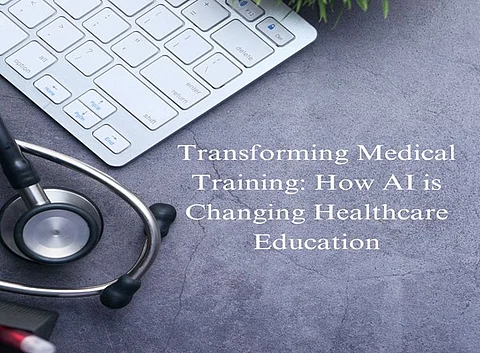

The integration of artificial intelligence (AI) into clinical education has been a key focus for enhancing medical training. Anil Kumar Reddy Avula explores how this revolutionary approach transforms learning experiences and optimizes resources, ultimately paving the way for improved healthcare outcomes.
AI-based clinical simulations are revolutionizing medical training, replacing the age-old model of apprenticeship. With their increasingly realistic patient scenario generation, they allow trainees to practice the skills in an environment that would otherwise be full of risk. Combining modern features such as GPU-accelerated rendering, adaptive algorithms and more, complex medical conditions may be accurately portrayed. Research proves that competency improvements are 41.2% based on such practice, significantly developing procedural proficiency. Beyond accelerating the learning curve, these simulations prepare students better for the real-world challenges in medicine and will ensure they are better placed to handle critical situations. Such innovation not only changes the landscape of medical education but also fortifies healthcare outcomes with highly skilled and confident medical professionals.
AI changes the game about performance analytics. Advanced systems that analyze data from clinical environments give trainees specific feedback, and this can really help them develop their clinical decision-making skills. These tools encourage trainees to improve continuously based on performance trends and gaps. Indeed, hospitals embracing AI-driven feedback systems have registered impressive efficiency benefits, such as a 32% reduction in patient wait times and an 87% improvement in resource utilization. These data-driven insights will optimize training outcomes while equipping trainees better for the realities of life and improving delivery in healthcare with a sense of operational effectiveness.
Virtual patient systems are changing medical education. This system is allowing students to exercise clinical skills through dynamic and interactive systems in a no-risk environment. The AI-based systems present students with varied patient scenarios to exercise diagnostic and decision-making abilities along with effective communication. It also enables them to handle the full range of clinical conditions through the processing of medical terminology and generating responses that seem natural for a patient. Studies have proven that students who use virtual patients have a 42% better ability to identify rare diseases and a 45% increase in confidence when dealing with complex medical conversations. This innovative approach not only improves diagnostic accuracy but also hones critical communication skills, the hallmark of success in healthcare. While the systems continue to evolve, they promise to bridge gaps in traditional medical training as they offer personalized, adaptive learning experiences in preparation for real-world practice challenges facing future healthcare professionals.
Clinical decision-making is one of the most critical aspects of healthcare, and AI-powered decision support systems (CDSS) are making it smarter and faster. These systems analyze vast amounts of medical data, providing real-time insights that guide physicians in diagnosing and treating patients. By reducing medication errors by 35.2% and improving adherence to clinical guidelines by 22%, AI tools are making healthcare delivery safer and more efficient. Additionally, they streamline workflows, cutting documentation time and enabling clinicians to focus on patient care.
Despite its promise, AI in healthcare training has its challenges. The first priority is data security because medical systems are targeted by cyberattacks more than any other. AI-enabled threat detection systems have reduced breach attempts by 71%, thereby protecting sensitive patient information. The second challenge lies in the integration of AI with legacy systems in healthcare. Institutions have made it easier for systems to be interoperable, reduce errors, and allow seamless data flow between different platforms through standardized frameworks. All these developments are important for developing strong and dependable healthcare solutions.
AI’s impact on healthcare education goes beyond simulations and analytics—it is reshaping the way future medical professionals are trained and evaluated. From reducing training times to improving diagnostic accuracy, AI is creating a smarter, more efficient training environment. Hospitals and educational institutions adopting these technologies have reported improvements not only in learning outcomes but also in patient care quality. AI is also making medical training more inclusive by simulating diverse patient demographics and conditions, preparing trainees for the realities of global healthcare.
In conclusion, Anil Kumar Reddy Avula’s work underscores the transformative potential of AI in healthcare education. By seamlessly blending advanced technology with traditional training methods, AI is paving the way for a new generation of highly skilled medical professionals. As the healthcare industry continues to evolve, the integration of AI into education and clinical practice will remain pivotal in enhancing patient outcomes and redefining the future of medicine.
Join our WhatsApp Channel to get the latest news, exclusives and videos on WhatsApp
_____________
Disclaimer: Analytics Insight does not provide financial advice or guidance on cryptocurrencies and stocks. Also note that the cryptocurrencies mentioned/listed on the website could potentially be risky, i.e. designed to induce you to invest financial resources that may be lost forever and not be recoverable once investments are made. This article is provided for informational purposes and does not constitute investment advice. You are responsible for conducting your own research (DYOR) before making any investments. Read more about the financial risks involved here.
